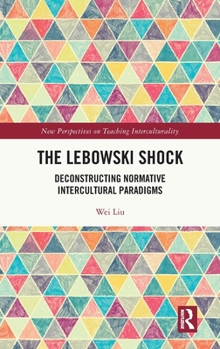The Lebowski Shock: Deconstructing Normative Intercultural Paradigms
Grounded in autoethnographic observations and informed by critical, postmodern, ethnographic, and narrative approaches, this work presents a new framework for intercultural communication education that aims to deconstruct normative intercultural paradigms.
Critical scholars in intercultural communication education have advocated a shift from the essentialist approach, which focuses on the Western Centre, to a non-essentialist approach that treats all national cultures as equally complex, rich, and legitimate. However, deconstructing old frameworks is easier than constructing new alternatives. At the heart of this book lies the "Lebowski Shock", an innovative theoretical construct that bridges the gap between the ideals of non-essentialist and non-stereotypical intercultural learning, and their practical implementation. It can overcome the human cognitive tendency toward essentialism and the entrenched power structures that perpetuate essentialist views. By offering a tangible and actionable framework, the "Lebowski Shock" equips readers with the tools to approach learning, teaching, and collaboration across diverse cultural contexts and foster open-ended, participatory, nuanced, and respectful intercultural engagement.
This book will serve as an essential resource for scholars, educators, and students in intercultural communication education, as well as for anyone dedicated to promoting intercultural understanding.





